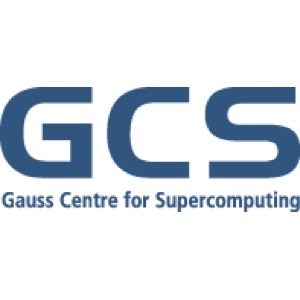 GCS in Germany has approved the allocation of 1.171 billion core hours of computing time to 13 outstanding national research projects. The researchers awarded computing time allocations on the German Tier 0/1 supercomputing systems Hazel Hen at HLRS, JUWELS at the Jülich Supercomputing Centre, and SuperMUC-NG at LRZ for a period of 12 months.
GCS in Germany has approved the allocation of 1.171 billion core hours of computing time to 13 outstanding national research projects. The researchers awarded computing time allocations on the German Tier 0/1 supercomputing systems Hazel Hen at HLRS, JUWELS at the Jülich Supercomputing Centre, and SuperMUC-NG at LRZ for a period of 12 months.
For the 21st GCS Large-Scale Call, almost 30 project applications with a total of more than 2 billion core hours of computing time requests were submitted to the GCS Coordination Office. The ambitious simulation projects cover a wide range of scientific disciplines, including fluid mechanics, astrophysics and astronomy, geochemistry, nuclear and elementary particle physics, quantum mechanics, physical and theoretical chemistry and condensed matter physics, among others.
All three GCS facilities are currently in various stages of installing their newest HPC systems—SuperMUC-NG at LRZ is completing its start-up phase; at JSC, the planning of the eagerly awaited extension of it’s modular HPC system, JUWELS, by a booster module is ongoing and the development phase is expected to start soon; at HLRS, supercomputer Hazel Hen is about to be replaced by its successor system, Hawk, an AMD-based HPC system provided by Hewlett-Packard Enterprise. To that end, the selection procedure for the current GCS large-scale call had to be very strict, allowing only a limited number of projects to be approved.
The strong response to this edition of the GCS Large-Scale Call clearly demonstrates that large compute time allocations and cutting-edge HPC power and technologies remains in extremely high demand,” explains Prof. Dr. Dieter Kranzlmüller, Chair of the Board and Managing Director of the Leibniz Supercomputing Centre and newly appointed Chair of the Board of Directors at the Gauss Centre for Supercomputing. “We very much look forward to providing the hardware of our leadership-class systems and the minds of our HPC software and scaling specialists in support of the ambitious national scientific and industrial research activities. As all three GCS centres advance forward on the path to exascale computing in Germany, we are as committed as ever to meet the researchers’ ever-growing computing needs in modelling and simulation, data analytics and artificial intelligence.”
With 234 million core hours on HLRS’ HPC system Hazel Hen, the largest individual allocation of computing time was awarded to a fluid mechanics project under the leadership of Dr.-Ing. Markus Kloker of the Institute of Aerodynamics and Gas Dynamics at the University of Stuttgart (project LAMTUR – Investigation of Laminar-Turbulent Transition and Flow Control in Boundary Layers).
For his research project “MillenniumTNG: Linking cosmology and hydrodynamical simulations of galaxy formation,” Prof. Dr. Volker Springel, Director of the Max Planck Institute for Astrophysics (MPA) in Garching near Munich, and his team were awarded almost 190 million core hours on LRZ’s HPC system SuperMUC-NG, marking the second largest individual computing time allocation of the current GCS call.our
Sign up for our insideHPC Newsletter



